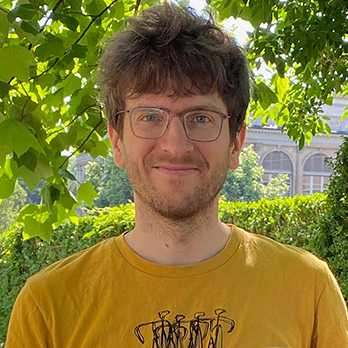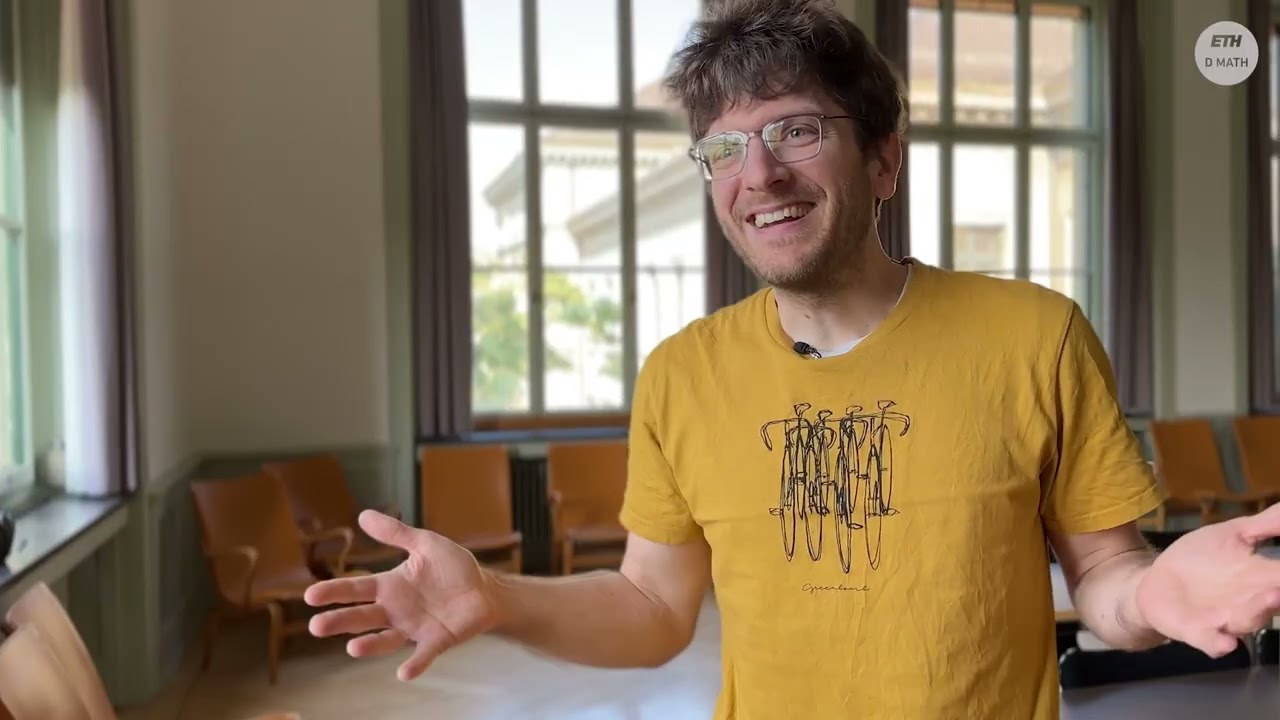From data to causal insight
Jonas Peters started his position as a full professor of statistics on 1 April 2023. His work at the intersection of statistics, data science and machine learning brings fresh impetus to the research, teaching and outreach at the Department.
Jonas Peters enjoys the moment of insight. That moment, when not only the answer to a question is found, but the underlying structure of the problem itself is revealed. In Peters' work, such understanding typically emerges from large data sets, and the journey from data to insight proceeds through different levels. "We want to learn causal structures from complex data, where it is typically difficult to separate cause from effect," says Peters. "Understanding causal relationships is necessary if we want to figure out how to change – and hopefully improve – the world we live in." Such causal questions cannot be answered by classical machine-learning methodology that focuses solely on prediction.

'Understanding causal relationships is necessary if we want to figure out how to change – and hopefully improve – the world we live in.'Jonas Peters
As a simple example, consider predicting the sound quality of a string instrument. Peters plays the cello, and he has also built his own instrument. In the building process, many factors come into play, but not every one of them contributes causally to a pleasing sound: "If we look at 18th-century cellos, we might conclude that a label saying 'Stradivari' or 'Guarneri' tends to predict outstanding sound quality. However, if I simply stick such a label in my own cello, its sound will not change." By contrast, there are numerous other factors that are indeed causal predictors and actually contribute in intricate ways to a harmonious sound, from the choice and treatment of the wood to the type of varnish that is applied.
Cross-disciplinary contributions
In his research, Peters is interested in applications that are perhaps less artistic, but instead more directly relevant to science and, ultimately, society. In his past work, these applications have ranged from how ecosystems respond to environmental conditions and how armed conflict affects the loss of tropical forests, to learning metabolic networks. In his future work, Peters plans to focus even more on pressing societal challenges of our time, including climate systems.
In these applications, the interest is not just in extracting causal structure, but often also in finding statistical models that work well even if the underlying system changes. “This is sometimes called distributional robustness and in my opinion closely connected to causality,” says Peters.
What do the data tell us?
This passion for understanding data and for contributing innovative mathematical tools to interdisciplinary research projects is a common thread running through Peters' career. He started studying mathematics with physics as a minor at the University of Heidelberg and completed in 2006 and 2007 the Master of Advanced Study in Mathematics at the University of Cambridge (commonly known as 'Part III of the Mathematical Tripos').
In 2009, he received his diploma in mathematics and embarked on his PhD work, which he conducted jointly at the Max Planck Institute for Intelligent Systems (MPI-IS) and in the Seminar for Statistics at ETH Zurich, under the supervision of Bernhard Schölkopf, Dominik Janzing and Peter Bühlmann, with a three-month visit to Microsoft Research in Bellevue (US). Following a postdoctoral stay at ETH, he became a group leader at MPI-IS. In 2016, he moved to the University of Copenhagen, where he started as an associate professor of statistics and was promoted to full professor in 2019.
During this time Peters and his collaborators built up a considerable body of work on inferring causal relationships from different types of data. One guiding principle for his statistical methods is to evaluate models according to how robust they are with respect to distributional shifts. In the case of cellos, many people quickly realized that instruments made by certain luthiers could be sold for more money and put forged labels into instruments. As a result, the predictive quality of the 'name on sticker' predictor changed over time – an indication that this predictor may be non-causal. "Sometimes, it is difficult to infer the correct causal model. But realizing that a given model is non-causal is an important first step."

'Teaching is an important part of our job – this is how we can have an impact on our society.'Jonas Peters
The joy of sharing insights
Peters' contributions to the relatively young field of causal inference have been recognised with several prestigious awards, among them the ETH Silver Medal for his doctoral thesis, the 2019 Guy Medal in Bronze from the Royal Statistical Society (UK), and the 2021 Silver Medal from the Royal Danish Academy of Sciences and Letters.In 2018, Peters received, jointly with Janzing and Schölkopf, the ASA Causality in Statistics Education Award for their book "Elements of Causal Inference: Foundations and Learning Algorithms".在2016年和2021年之间他也的一员German Junge Akademie, which brings together outstanding young academics from across all scientific disciplines and the arts.
He is equally proud of the teaching awards he has received, including being voted Teacher of the Year in Science by students at the University of Copenhagen in 2018. "Gaining insights is one thing, but helping students to gain insights themselves amplifies the joy," he says. "Teaching is an important part of our job – this is how we can have an impact on our society."
The desire to share his enthusiasm for mathematics does not end with inspiring and mentoring students. Two years ago, he and D-MATH professor Nicolai Meinshausen published the book "The Raven's Hat". In it, they explain mathematical concepts to laypeople through games, complete with practical playing tips and historical perspectives. Each game presents a challenge that at first seems unsolvable. But once the underlying mathematical structure becomes clear, the solution appears almost naturally – a motif that pervades Jonas Peters' research, teaching and outreach activities.


